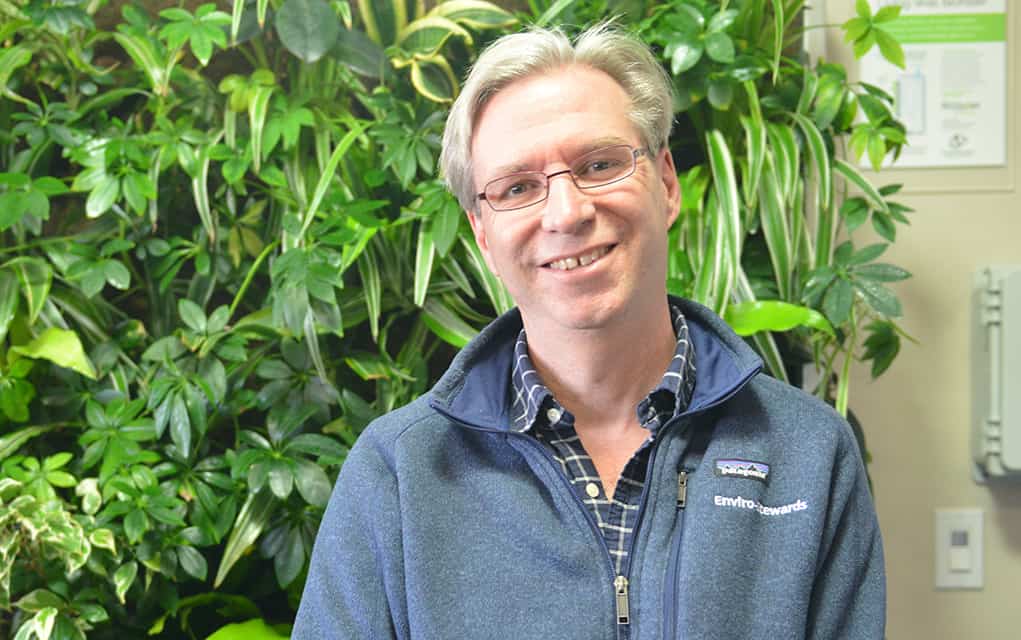Elmira consulting firm Enviro-Stewards has won an international award for its dedication to advancing sustainable development goals (SDGs), a United Nations framework to achieve a better global future by 2030.
Enviro-Stewards was recognized in the “Partnerships for the Goals” category for its many local and global partnerships. President Bruce Taylor said the award came as a surprise.
“It’s very encouraging. The category is very helpful to us because it’s ‘Partnership for the Goals’ – it’s the way that we do our work in North America and our development work in East Africa,” said Taylor. “Here, we collaborate with manufacturing facilities with their own team and help them find ways to make their facilities more efficient.”
Among others, the company has formed a partnership with Maple Leaf Foods, a consumer-packaged meats company based in Toronto, to help them in a goal of reducing their energy, water, greenhouse gas emissions, and waste footprint by 50 per cent by 2025.
To do so, Enviro-Stewards provided water, energy and pollution assessments at 35 of Maple Leafs’ facilities to help develop a roadmap that would help the company achieve their goal. As part of the collaboration, both companies sponsored the construction of a bio-sand water filter for each of the food facilities, audited by Enviro-Stewards for several years.
“We’re trying to find the biggest contributors, and then what can be done about them,” said Taylor. “It’s basically preventing problems instead of curing problems, because it’s much more expensive to cure a problem after it occurs than to prevent it in the first place.”
One notable positive impact is 105 tonnes per year of greenhouse gas emissions avoided at these facilities.
Other accomplishments of Enviro-Stewards include a food and waste assessment at Campbell’s soup factories that found savings of 938 tonnes of food annually valued at $700,000 and a bike-to-work challenge that diverted some 2,330 kilometres of car driving.
Enviro-Stewards also forms partnerships with companies across the globe, in addition to these Canadian companies. One example is the Kambagiri Foundation in Uganda, who trains locals and refugees to build and sell bio-sand filters.
“Enviro-Stewards has been engaged in empowering South Sudanese since 2014 to date to provide sustainable, safe, affordable water to communities, by making global goals a local business,” said Loguya Matthew, founder of the Kambagiri Foundation.
There are 17 awards featured in the inaugural Global SDG Awards, such as Clean Water & Sanitation, No Poverty, Zero Hunger, and Quality Education for the year 2018. Announced on March 25, Enviro-Stewards was the only Canadian company to receive an award.
Taylor notes the company avoids the traditional models of charity, which in fact end up hurting more than they help.
“In every commercial we’ve seen, it’s rich people giving stuff to poor people,” said Taylor. “It actually doesn’t work. You’re literally destroying the local capacity to provide whatever it is that you’re doing.”
He listed the example of ANM Textile in Tanzania, a company that makes mosquito nets. After a “charitable effort” gave away mosquito nets in that area for free, it ended up doing long-term damage to the local company, which laid off 600 workers.
“In North America, it’s actually illegal to do that because it’s unfair business practice,” said Taylor. “You’re creating a monopoly for yourself. But these charities create these monopolies that they don’t even want, and they can’t handle once they get them.
“Because let’s say the mosquito net breaks, where are you going to get another one? You just put the local company out of business. You just put the shopkeeper out of business, because you’re distributing free ones. So you’re literally destroying the local capacity to provide what you’re doing.”









